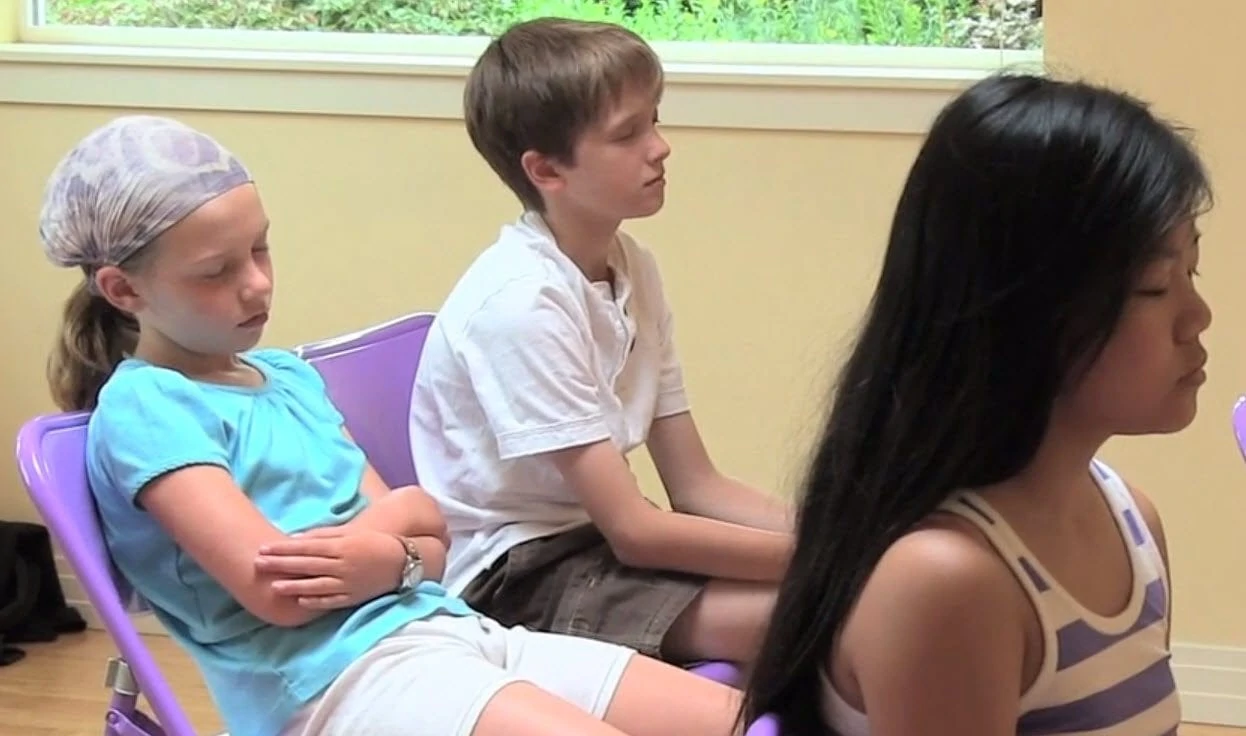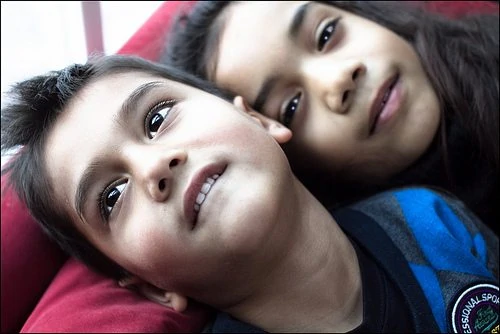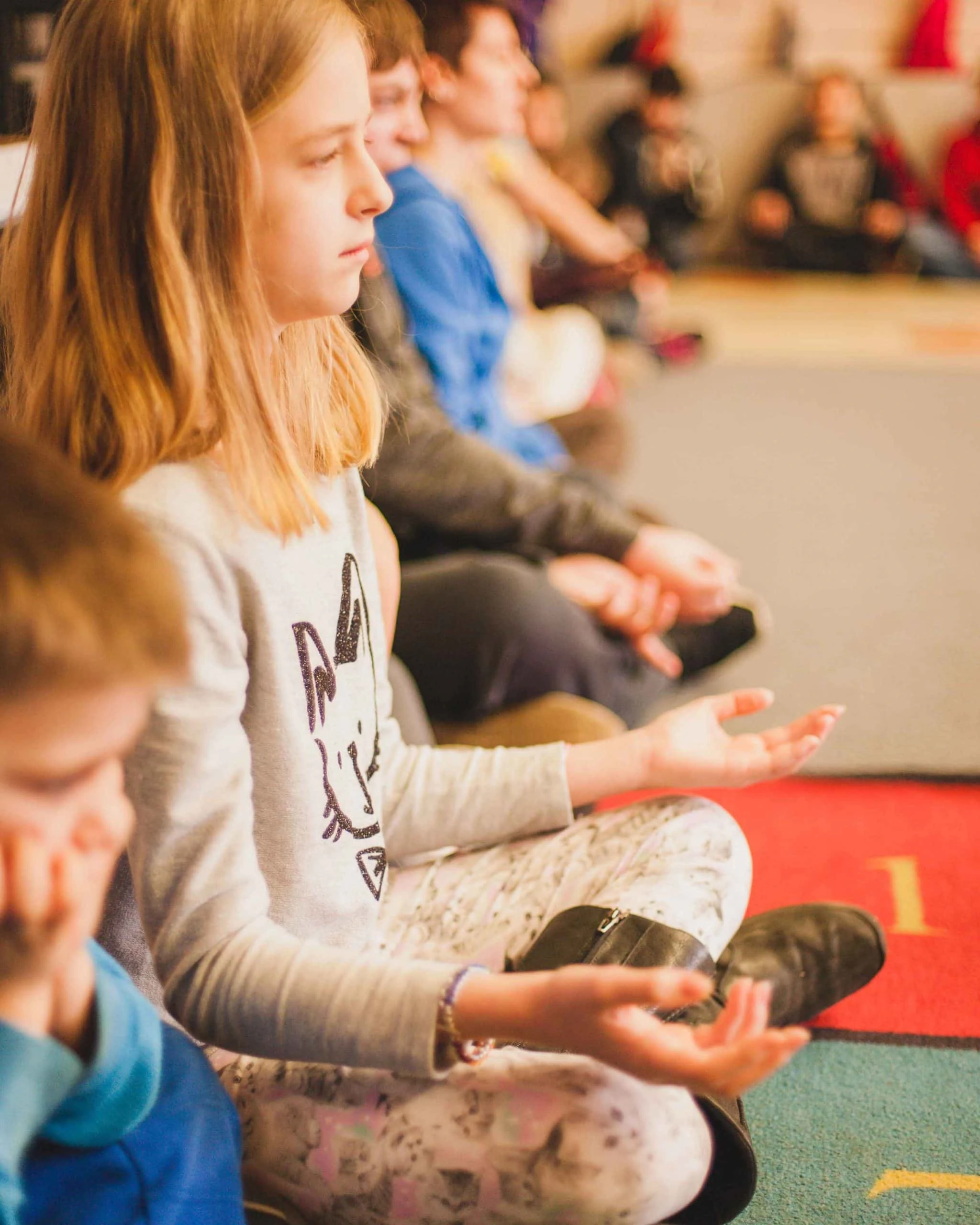There’s a simple reason you keep seeing more schools establishing mindfulness programs: They work. As Kim Rempel summed up in her 2012 review of the literature,
The potential benefits of integrating mindfulness-based training into school settings are significant in regards to effects on cognitive, emotional, interpersonal, and spiritual domains. Research reviewed here suggests that mindfulness-based practices can have a positive impact on academic performance, psychological well-being, self-esteem, and social skills in children and adolescents. There is evidence that mindfulness-based training in schools is feasible and acceptable to those who have participated in it.
A more recent review, published last year in the academic journal Mindfulness, concurred, calling mindfulness “a promising intervention modality for youth.”
Having scientific backing is important, no doubt. Yet it can pale in comparison to direct feedback from students:
These teens were all part of Peace in Schools’ inaugural mindfulness course at Wilson High School here in Portland, Oregon – the first for-credit mindfulness class offered at any US school. It incorporates both yoga – taught by two of our Certified Yoga Calm Instructors – and mindfulness training.
Here’s what another student had to say about her experience and the powerful impact it had on her life:
First offered at Wilson in 2014, the “Mindfulness Studies” elective is available to students at Lincoln and Cleveland High Schools. It’s another step toward the ultimate goal of a district-wide implementation.
Mindfulness & Growing Up
Mindfulness – non-judgmental, moment-to-moment awareness; total attention to what is as it’s happening right now – is inherent to yoga. It’s also a skill that supports other skills, such as empathy, kindness, and gratitude. It’s a skill that informs or underlies self-regulation.
Now, just a few minutes of observing a young child at play and you can’t help but think kids are born to live in the moment. As they get older, they lose some of this. By the time they hit their tweens, faulty thought patterns such as self-doubt and self-consciousness have often kicked in – patterns that are anything but rooted in non-judgmental awareness of the moment. They are future-oriented, dancing with worry and anxiety.
That mindfulness gives youth a way of dealing with these difficult growing-up emotions perhaps explains why it can be such a powerful, global intervention for tweens and teens.
Mindfulness & the Brain Course
This April, we’ll be offering our first course ever on “Mindfulness and the Brain: Interpersonal Neurobiology and Mindfulness in Education.” Taught by Caverly Morgan – who developed Wilson High’s mindfulness curriculum – and Christine Downs – who taught Interpersonal Neurobiology at Portland State University – this two day event offers a unique opportunity to learn both the brain science and specific mindfulness techniques from two experts.
We’ll cover basic brain anatomy, development, and function. And you’ll learn about the latest scientific research on mindfulness practices. You’ll gain both a theoretical and experiential understanding of the brain-body connection. You’ll build attentional skills, cultivate acceptance, bring awareness to the inner critic, learn compassion, and practice relational mindfulness skills.
We’ll focus on how mindfulness can transform your life, your relationships, and your work with youth.
What’s more, this event will be filmed for a future online course. In appreciation, participants will get free access to the online course for 3 years – a great way to review course content and activities!
The course will be held April 2 – 3, 2016, at the beautiful and relaxing Still Meadow Retreat, about a half hour outside of Portland. To learn more about the course – and to register – click here. Register before the end of February and get at $25 discount!





